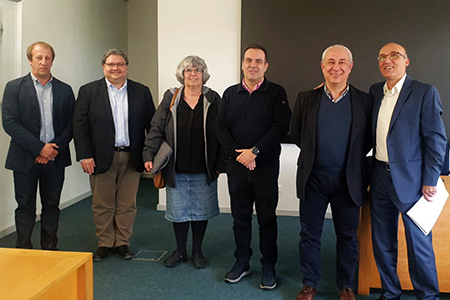Candidate
Artur Jorge da Silva Rocha
Date, Time and Place
May 17, 14:30, Sala de Atos FEUP
President of the Jury
Pedro Nuno Ferreira da Rosa da Cruz Diniz, PhD, Full Professor, Faculdade de Engenharia da Universidade do Porto
Members
José Luís Brinquete Borbinha, PhD, Full Professor, Department of Informatics Engineering, Instituto Superior Técnico da Universidade de Lisboa;
Irene Pimenta Rodrigues, PhD, Associate Professor, Informatics Department, Universidade de Évora;
Rosaldo José Fernandes Rossetti, PhD, Associate Professor, Department of Informatics Engineering, Faculdade de Engenharia da Universidade do Porto;
Ademar Manuel Teixeira de Aguiar, PhD, Associate Professor, Department of Informatics Engineering, Faculdade de Engenharia da Universidade do Porto (Supervisor).
Abstract
“Observation is central to most research methods independent of the paradigms used. From the observational roots of positivism to the subjective individual experiences of interpretivism, most, if not all, scientific studies require repeatedly observing features over time. Documenting observations and the processes used to acquire them, capturing the context of observations, and identifying relationships between observed features in a structured and meaningful manner is extremely important for the interpretability and reproducibility of research results. It is common that the effort preceding data processing, including steps such as data cleansing and structuring, vastly outweighs the time spent writing and tailoring the algorithms for processing and analysis. Therefore, having a conceptual framework instantiated in models, methods, and tools to effectively record observations in a structured way, independently of their nature, along with associated features and context, would help reduce the effort of preprocessing and potentially contribute to increasing the quality of results. Analogously, derived features resulting from the processing of the original observations can benefit from a similar approach, thus making the workflows on research data more explicit and reproducible. This research work is focused on the data collection and analysis stages of the research data lifecycle. It has been done in the context of diverse research projects, over several years, contributing to structure knowledge across different research domains. The research encompassed the identification of new needs, the design and prototyping of novel solutions, and their application to concrete high-demand environments to test, refine, and validate the proposed solutions, which are collectively consolidated as an enhanced approach for the lifecycle of research data. As a result, this work provided contributions of different types, of which we highlight observation templates and observation framework. These main contributions were validated in the context of the respective research projects and scientific publications.”
